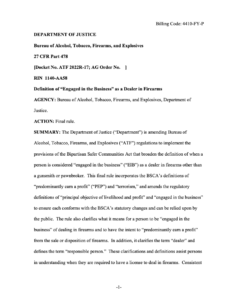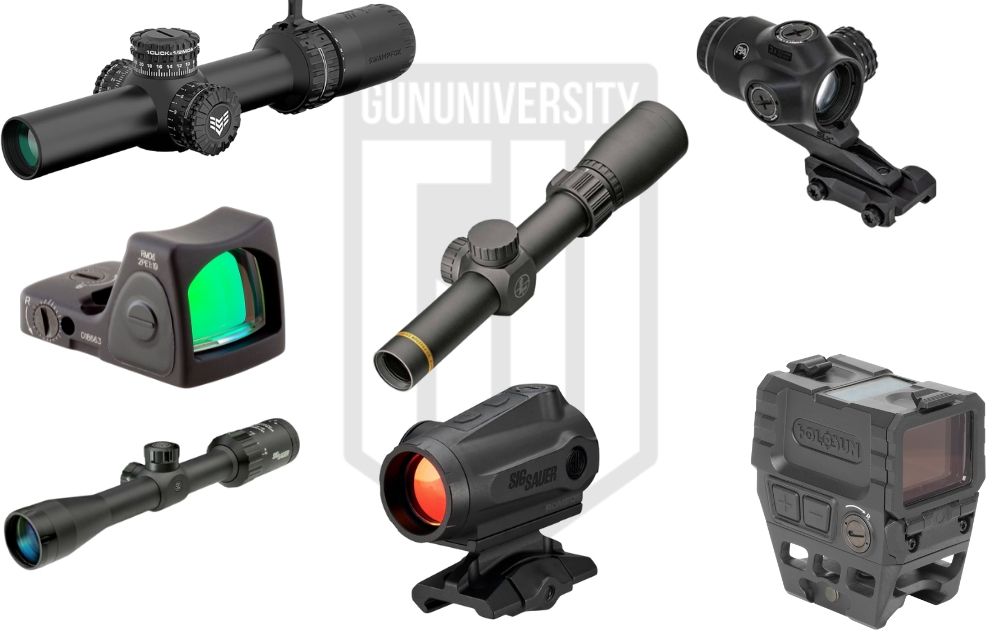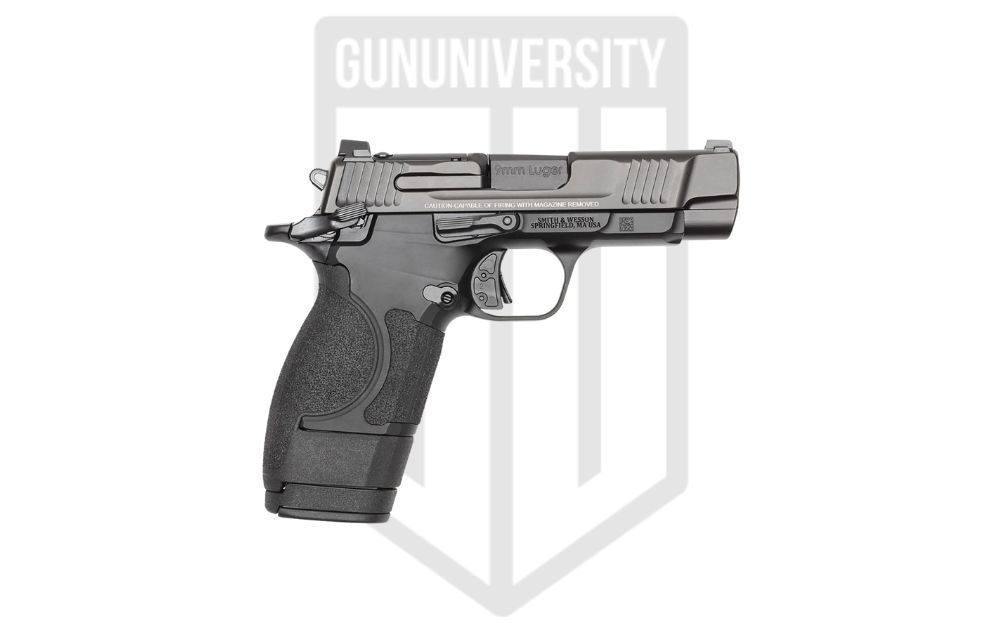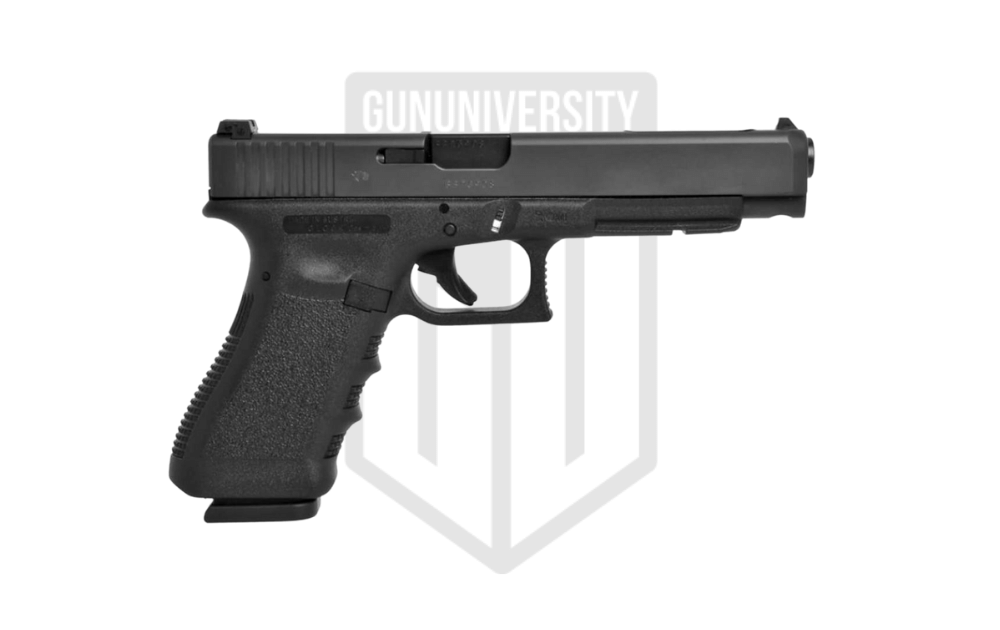Unpacking the ATF’s Updated “Engaged in the Business” Rule
The ATF’s new rule redefines what it means to be “engaged in the business” of selling firearms.
This change will impact firearm sales that were previously considered to be private or personal sales (including those at gunshows) and will thereby require more people to become licensed as Federal Firearms Licensees (FFLs).
The effects of this rule will be to shut down the “gun show loophole,” increase the number of background checks run on firearm sales, and increase ATF’s authority over a larger number of FFLs.
Although it’s another example of the ATF’s over-reach and another example of our rights being infringed, this rule is not as bad as some people think (it’s still bad) when compared to the ATF’s other recent actions.
FFL System Background
A Federal Firearms License (FFL) is required for any person or company who has the intent to be engaged in the business of making, selling, or importing firearms.
However, this does not mean that an FFL is required to sell or make firearms – instead an FFL is only needed if there’s an intent to be engaged in the business of doing so. It is still perfectly legal to make a personal firearm and to sell a personal firearm.
These personal firearm sales anger the anti-gun crowd because they can be conducted without a background check. This is because the strict compliance requirements on FFLs, such as record-keeping, background checks, etc, do not apply to private citizens.
This is what some people call the “gun show loophole,” which is not a loophole at all, because a private citizen can go to a gun show and sell their firearm to another private citizen without a background check.
Therefore, the distinction between “personal” and “engaged in the business” is very important.
Overview of the New Rule
To be clear, this new rule does NOT change the requirements for firearm sales for private individuals nor FFLs. However, it DOES change the distinction between what is a private sale and what is a sale that requires an FFL (and thereby all of the requirements that already exist for FFLs).
The net result: More firearm transactions will be conducted through an FFL and will have more stringent record-keeping, will involve background checks, and will be under the ATF’s scrutiny.
Prior to this rule, someone was “engaged in the business” when their “principal objective” of purchasing and reselling firearms was both “livelihood and profit.”
The Bipartisan Safer Communities Act (BSCA) [Note: when you read the title of a new law, you can be assured that is NOT what it actually does] removes one of the two requirements, “livelihood.” Therefore, it now only matters that someone intends to make profit on a sale. If they do, they are “engaged in the business” and an FFL is required.
The ATF has also made a “presumptive list” (included below) that they will use to determine if someone is engaged in the business (although it is not a “complete” list – meaning more activities can trigger teh new rule but this is a baseline/guidance only)
It is clear to me that the motivation behind this is for the ATF to have more control – as a private citizen, there’s not much they can do unless you’re blatantly breaking the law. For example, knowingly selling to Mexican drug cartels (the ATF hates competition).
The rule also makes some other changes to definitions but they are either to carry-out this main purpose or to provide formal exemptions for people like auctioneers and it makes it clear that it is still legal to buy and sell firearms occasionally or to liquidate your collection or inherited firearms.
The rule also addresses an issue where some people would get an FFL, acquire many firearms, and then surrender the FFL/go out of business, and then have all of the prior FFL’s firearms now in their personal collection where they can sell without all of the FFL requirements. In some cases, people were surely doing this unscrupulously to get around background check requirements.
The ATF now considers such firearms “former licensee inventory” and not “personal inventory.” These firearms now need to be disposed to another FFL or transferred prior to submitting the records to the ATF upon closing down the FFL – this is so the ATF has a record of where the firearms went.
Implications for Gun Sales
How seriously does the ATF take people selling firearms without an FFL? In March of 2024, the ATF raided and killed Bryan Malinowski at his home because he was selling too many firearms without an FFL.
As note, there is no threshold number for how many firearms is too many. Instead, if the ATF believes that you had the intent to sell a firearm for any gain, then you’ll be in serious trouble unless you have an FFL.
The penalty for not having an FFL if the ATF determines you need one? You’ll lose your gun rights forever (felony) and pay a fine and serve up to 20 years in prison.
The takeaway for you is to be VERY careful when buying and selling firearms. Mr. Malinowski filled out a Form 4473, as all customers of an FFL must do for a purchase, in which he certified that he was not purchasing the firearm for resale when it appears that he actually was.
And, if you think you might need to get an FFL, it’s likely the time to get one now.
The federal government estimates that approximately 20,000 people fit the new definition of a dealer and need to have an FFL.
How to Get Your FFL
You can absolutely get your FFL on your own, you can even get one as a “home-based FFL,’ however, as a firearms attorney that represents FFLs agains the ATF, I’ve seen too many people set up their license the wrong way and get themselves into trouble so I made an online course that walks you through the entire process without having to pay my attorney hourly-rate.
Although I think I make it easy to get your FFL, and thereby make money with guns, I don’t want you to think that it’s a walk in the park to operate as an FFL. There are many requirements and some serious penalties – most of the requirements are record-keeping based.
For example, all FFLs must keep a “Bound Book” record that tracks where all firearms came from and where they went. The Bound Book Requirements are quite strict and the source of trouble for many FFLs. Up until recently, FFLs had to pay money to use FFL software to stay out of trouble with the ATF (or risk keeping the records by hand and making mistakes).
That doesn’t seem fair (much like it doesn’t seem fair to have to pay an accountant to pay your taxes or risk getting into trouble). So, I just made another company to help FFLs – FFLSafe provides a 100% free A&D Bound Book (no hidden fees or charges) that covered everything an FFL needs to stay out of trouble with the ATF and meets all of the ATF requirements.
“Presumptive List” of Engaged in the Business
§ 478.13(c) Presumptions that a person is engaged in the business as a dealer. In civil and administrative proceedings, a person shall be presumed to be engaged in the business of dealing in firearms as defined in paragraph (a) of this section, absent reliable evidence to the contrary, when it is shown that the person—
(1) Resells or offers for resale firearms, and also represents to potential buyers or otherwise demonstrates a willingness and ability to purchase and resell additional firearms (i.e., to be a source of additional firearms for resale);
(2) Repetitively purchases for the purpose of resale, or repetitively resells or offers for resale, firearms
(i) Through straw or sham businesses, or individual straw purchasers or sellers; or
(ii) That cannot lawfully be purchased, received, or possessed under Federal, State, local, or Tribal law, including:
(A) Stolen firearms (e.g., 18 U.S.C. 922(j));
(B) Firearms with the licensee’s serial number removed, obliterated, or altered, or not identified as required by law (e.g., 18 U.S.C. 922(k) or 26 U.S.C. 5861(i));
(C) Firearms imported in violation of law (e.g., 18 U.S.C. 922(l), 22 U.S.C. 2778, or 26 U.S.C. 5844, 5861(k)); or
(D) Machineguns or other weapons defined as firearms under 26 U.S.C. 5845(b) that cannot lawfully be possessed (e.g., 18 U.S.C. 922(o); 6 U.S.C. 5861(d));
(3) Repetitively resells or offers for resale firearms—
(i) Within 30 days after the person purchased the firearms; or
(ii) Within one year after the person purchased the firearms if they are—
(A) New, or like new in their original packaging; or
(B) The same make and model, or variants thereof;
(4) As a former licensee (or responsible person acting on behalf of the former licensee), resells or offers for resale to a person (other than a licensee in accordance with §§ 478.57 or 478.78) firearms that were in the business inventory of the former licensee at the time the license was terminated (i.e., license revocation, denial of license renewal, license expiration, or surrender of license), whether or not such firearms were transferred to a responsible person of the former licensee after the license was terminated in accordance with §§ 478.57(b)(2) or 478.78(b)(2); or
(5) As a former licensee (or responsible person acting on behalf of the former licensee), resells or offers for resale firearms that were transferred to the licensee’s personal collection or otherwise as personal firearms in accordance with 18 U.S.C. 923(c) and 27 CFR 478.125a(a) prior to the time the license was terminated, unless:
(i) The firearms were received and transferred without any intent to willfully evade the restrictions placed on licensees by chapter 44, title 18, United States Code; and (ii) One year has passed from the date of transfer to the licensee’s personal collection or otherwise as personal firearms.
Recent Posts
February 5, 2026
January 31, 2026
January 30, 2026
January 29, 2026


![Best 9mm Pistols [2026]: Ranked by Size & Use](https://gununiversity.com/wp-content/uploads/2021/09/Best-9mm-featured-1.jpg)


